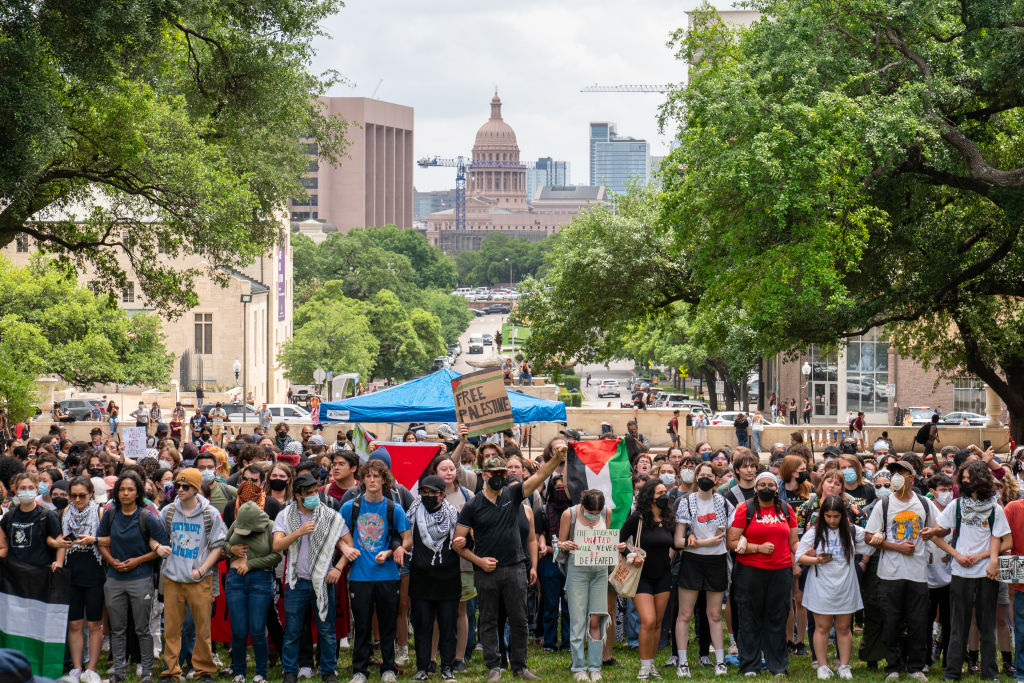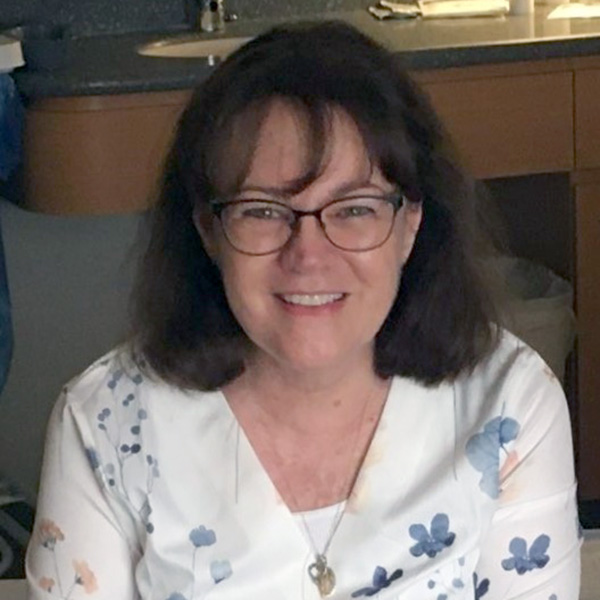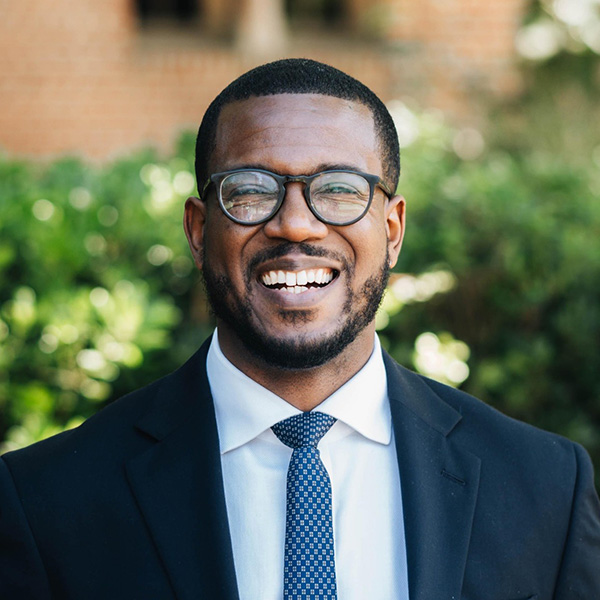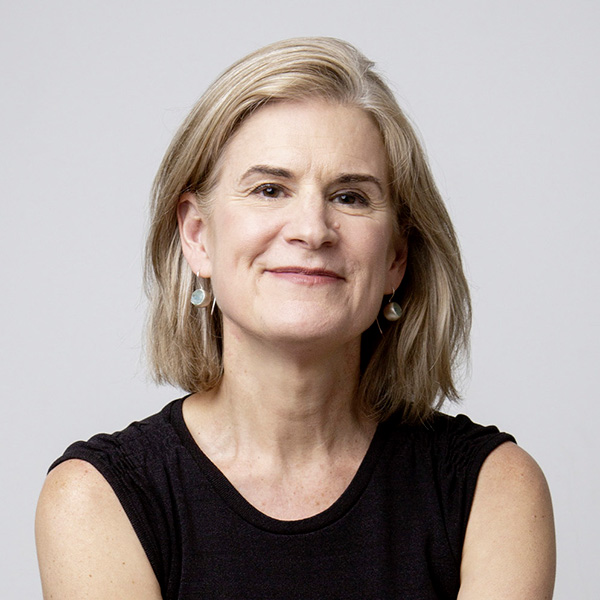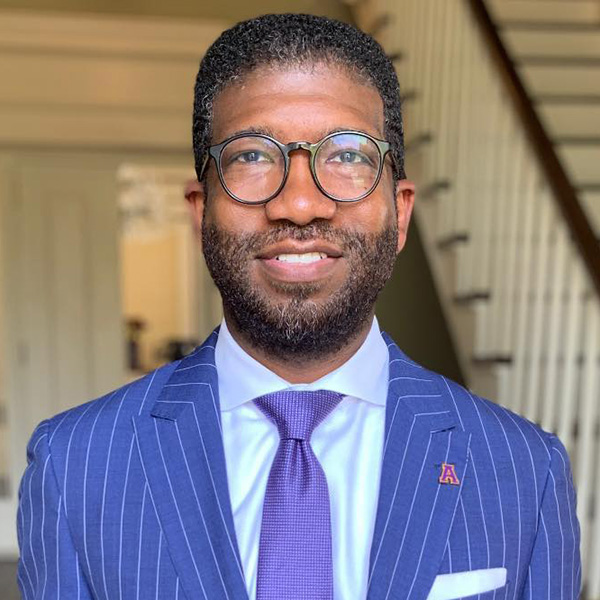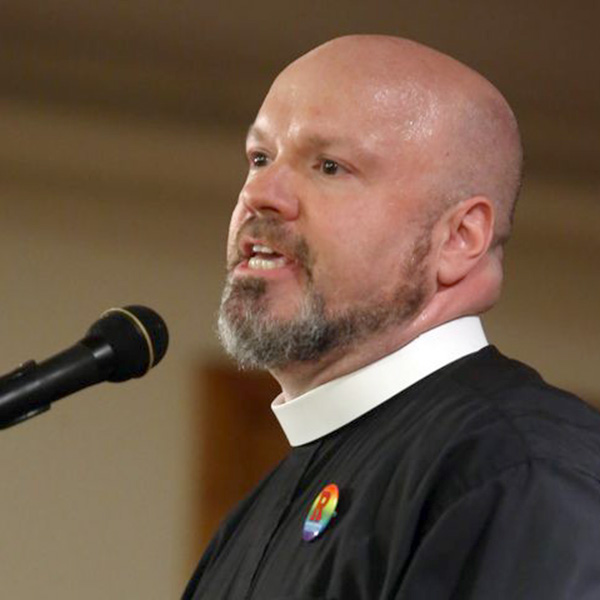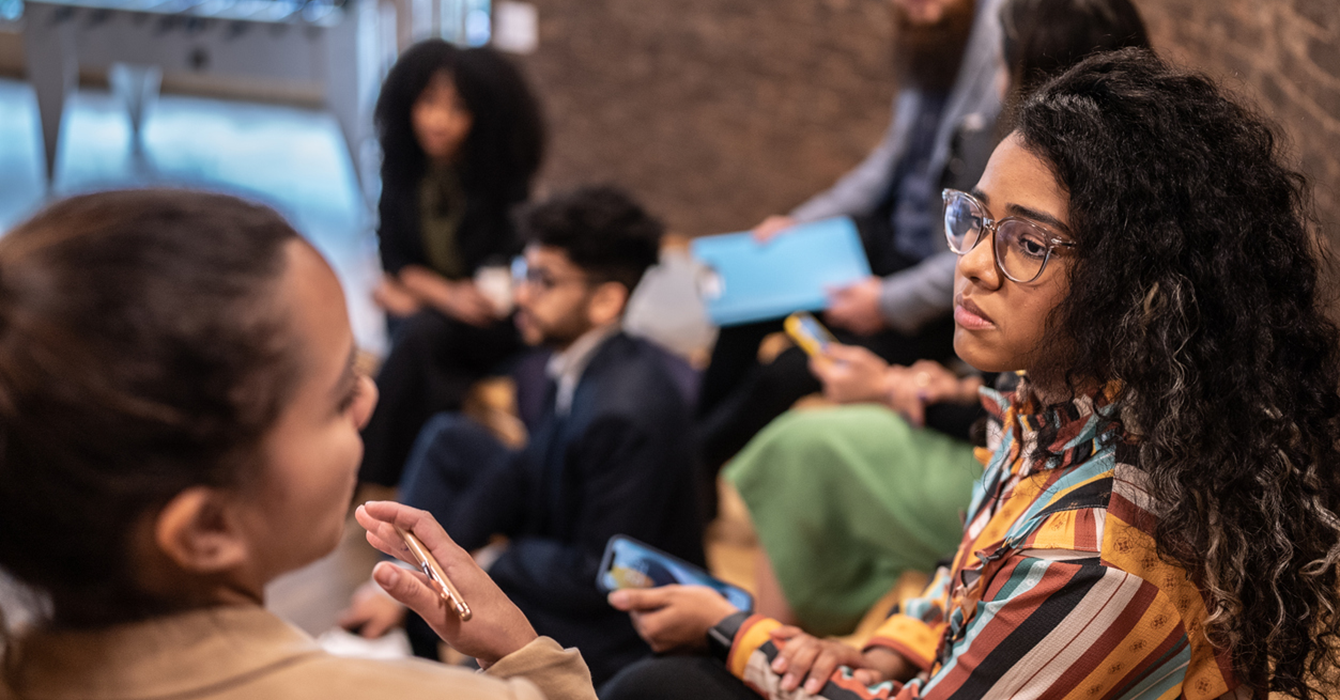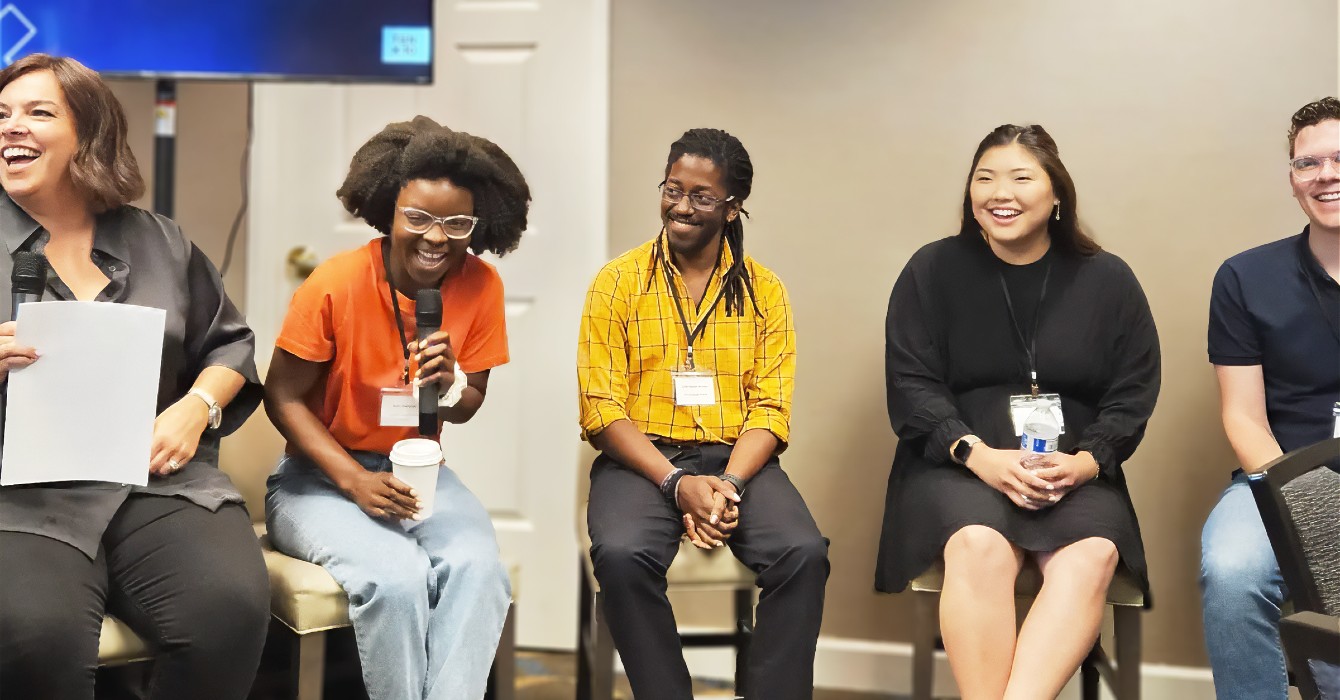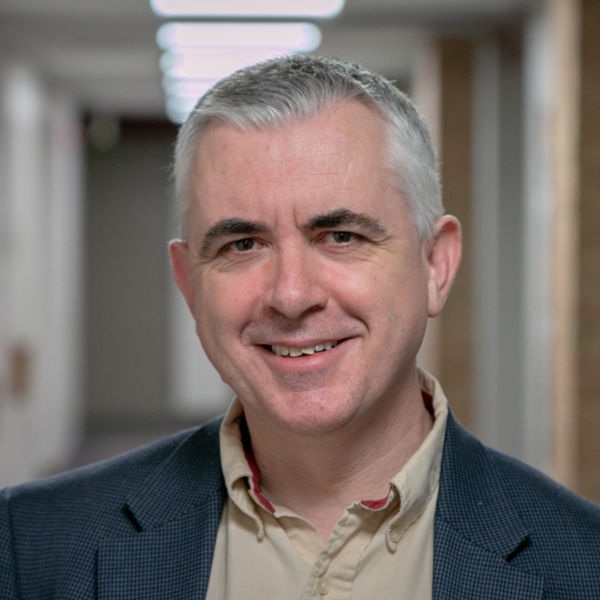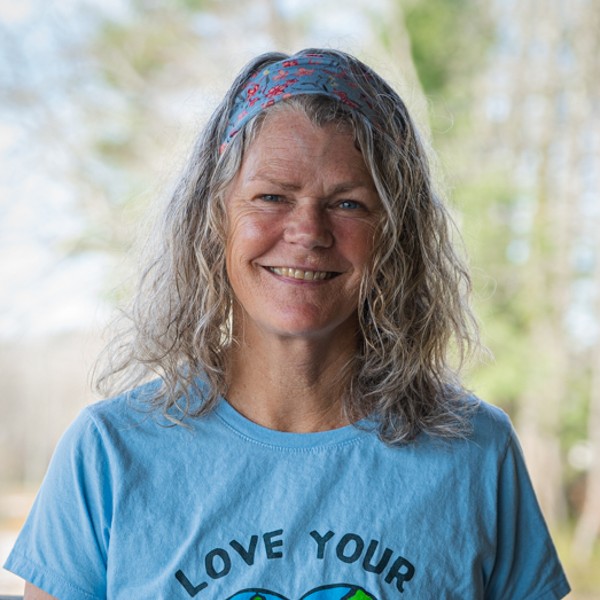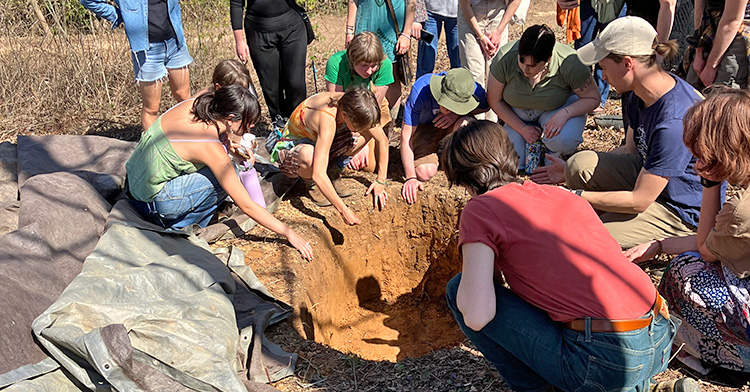As the school year drew to a close last spring at colleges around the country, tensions about the Middle East boiled over into highly publicized protests on some campuses. Jewish and Muslim students reported antisemitic and racist attacks that left them feeling unsafe, while school leaders were accused of over- and underresponding. Law enforcement was called in, graduation ceremonies were canceled, and a generation that has its doubts about institutions saw some of its worst fears reinforced.
Having been accused of being fragile, self-absorbed and technology-obsessed, the young people of this generation were now being criticized for their activism and willingness to disrupt systems that they felt were harmful. They were now wrong, apparently, for caring too much about themselves and about others.
People who work with Generation Z might describe them and the issues that motivate them differently. As a new academic year begins, we asked seven campus ministry leaders to reflect on the students they work with and their activism. From combined decades of pastoral leadership that extends across categories of geography, denomination, school size and type, the perspectives they share are snapshots.
Some have chosen to write about experiences during this spring’s protests; others, about the issues that fuel activism in their contexts or about a holistic vision of the young people they walk with. All express a heartfelt commitment to their students and a deeper understanding born of proximity and care.
The Beatitudes as a frame for young people’s experiences
BY DEE BERNHARDT, DIRECTOR OF CAMPUS MINISTRY
ST. THOMAS AQUINAS CATHOLIC CENTER AT PURDUE UNIVERSITY, WEST LAFAYETTE, INDIANA
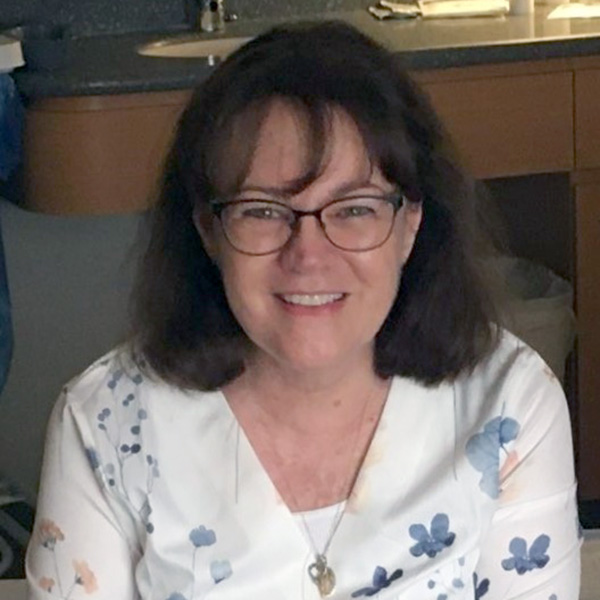
My work with collegians in campus ministry provides daily opportunities for reflection on the process of “adulting.” Offering leadership development and faith formation to these young adults inspires hope and encouragement for them and for me as we minister together in the name of Jesus Christ.
In my accompaniment of young people, I encounter the mystical body of Christ as he described it in Matthew:
The poor in spirit, who struggle to own a faith view of the world. They can feel awkward in spiritual settings if they were raised in families where religious practice covered, at best, holidays or, at worst, no church at all. Young adults who are engaged in a faith community find a sense of purpose and fulfillment in inviting these peers into their own religious experience, helping ease a source of social tension in this group.
The mourners, who carry a burden of grief, often since before high school graduation. Riding the waves of their experiences, they can become easily disoriented and lost in their own sadness. Pope St. John Paul II coined the term “culture of death,” describing the sad prevalence of suicide and death among young people in our current reality.
The meek, who are dependent upon social media and have been tagged “digital natives.” They can be found texting people sitting right next to them in social environments, lacking confidence to find words that might be acceptable if spoken aloud. These young people often live with a deep sense of aloneness and loneliness.
They who hunger and thirst for righteousness, who yearn for acceptance as their inner fire for justice collides with other young adults’ experiences of affluence and influence. Their selfless and generous Christian service threatens our comfortable college-educated society, highlighting the disparity between the “haves” and the “have-nots.” They are often persecuted for the sake of righteousness, as others find it easier to write them off than to step up in service.
The merciful and the peacemakers, who are the bridge builders of society, living in the proverbial gray areas, tirelessly working to draw peers and mentors into dialogue and consideration of the dignity of each person.
The clean of heart, whose innocence and purity defy the jaded and tarnished fabric of society, fostering hope and belief in the face of the cynicism and materialism of their daily existence.
The insulted and persecuted, criticized for their faith, passion and simplistic, somewhat self-centric approach to life, who struggle to find purpose in living. Disproportionate numbers of young adults choose to end their own lives, failing to reconcile their individual focus with an inner call to reach beyond their comfort zones for the sake of the gospel and others.
Within our highly polarized and volatile society, these university students and graduates continue to identify their personal giftedness, repeatedly choosing to work in the service of the Lord with their eyes fixed on the kingdom of God. They encounter their own wounds and those of their families, friends and communities, praying them through and offering the graces of suffering for those around them.
Guided by the Spirit, they bring us a future filled with hope, forged within the crucible of their lives, that can escape our notice in the continuously changing paradigms of Christianity, in which they embrace their call to discipleship and action.
Hope in despair, care in uncertainty, love across difference
BY BRANDON HARRIS, ASSOCIATE DEAN FOR RELIGIOUS AND SPIRITUAL LIFE
UNIVERSITY OF SOUTHERN CALIFORNIA, LOS ANGELES
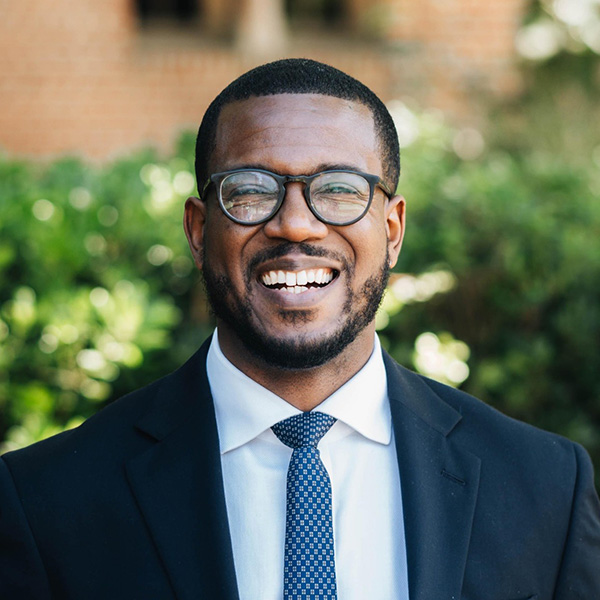
Our school year was coming to an end, with students preparing for final projects and exams and the campus preparing for commencement. The morning of May 5 began peacefully, as usual, with the addition of tents and placards of pro-Palestinian encampments set up on Alumni Park, one of the quads at the heart of USC.
But by that afternoon, things turned: USC public safety officers and LAPD officers swarmed the campus. Police helicopters whirled overhead, and phones buzzed with updates from university officials announcing the shutdown of campus. Students from Trojan Church immediately began to message one another, checking on the well-being of their friends amid the sudden disruption and chaos.
Trojan Church at USC was planted in 2023 as a collaboration between the USC Office of Religious and Spiritual Life and United University Church, a congregation affiliated with the Presbyterian Church (U.S.A.) and the United Methodist Church. An interdenominational, multiethnic, Jesus-loving, affirming community grounded in the spirituality of the Black church, it has grown into a student-led, vibrant, joyful, Spirit-filled fellowship of students, staff, alumni and people from the larger community. The deep bonds students formed there would be tested in the coming days.
As police marched through campus on this unprecedented day, Trojan Church student leaders decided to gather at my office, turning it into a convening space for those who couldn’t get home. The Rev. Sunny Kang, the pastor of United University Church, arrived with pizza and soda. Students trickled in, often with friends who never attended Trojan Church or weren’t religious but just needed somewhere to gather.
They stayed late into the night until an all clear was given. Displaying tremendous care, they walked each other home, texted each other to ensure that all were safe, and brainstormed how they could provide care for the community. The next morning, we discovered that 93 people had been arrested.
With continued uncertainty, the stress of looming exams and the campus still under lockdown, Trojan Church students gathered in my office throughout the day for a peaceful space to be with their friends. With piles of Louisiana fried chicken, fried rice and gumbo, with the sounds of Beyonce playing in the background, they cried, lamenting the arrest of their classmates and friends. They watched TV; they walked each other to class; they prayed and talked, providing friendship and support.
I was awed as the diverse gathering of graduate and undergraduate students — Asian American and Black and white and Latinx, queer and straight, theologically conservative and progressive — held each other in love and care as they tried to find hope in the midst of despair. Throughout that week, they continued to care for each other even when administrators and their pastors weren’t present. That Sunday evening, the students crammed the Fishbowl Chapel, where we worship, the gospel choir gently lifting their voices as tears slid down their faces, students huddled together in prayer as they collectively processed the week.
As usual, students poured into my office for dinner after worship. Except this week was different. Even as the campus felt divided and students were unsure about what to do or how to engage, I watched as they greeted their Muslim friends and classmates who were at the Religious Center playing table tennis. I witnessed them take food to student protesters who were using the kitchen as a staging area. I saw them hug and welcome folks who wandered in, still dazed from the week’s events.
They gathered with laughter and hugs, and I cried, realizing that this is what church is supposed to be. They were finding hope in despair, providing care in uncertainty, and learning to love across differences. Pastor Sunny and I looked at each other and said, “The church is going to be all right.”
“The church is going to be all right.”
‘Something that felt greater than myself’
BY LARCEEDA “BRITISH” HYRAMS, ASSOCIATE CHAPLAIN
PRESBYTERIAN COLLEGE, CLINTON, SOUTH CAROLINA
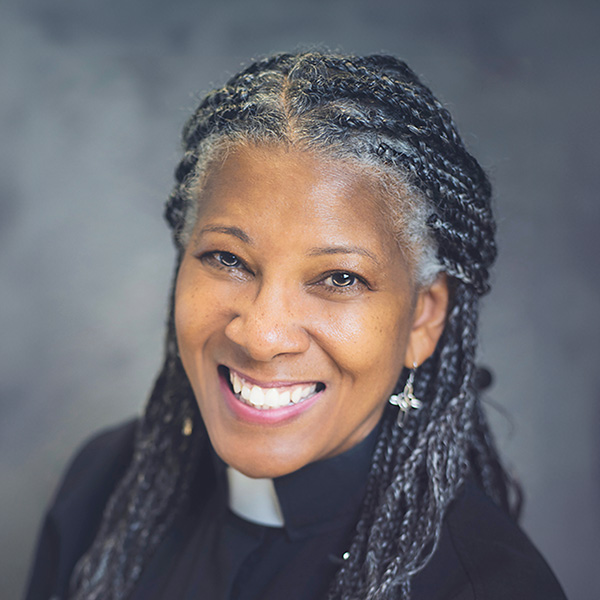
Most people would not consider the college where I serve charged regarding societal issues. “Apathy” and “disengagement” might mistakenly be used to describe students that are simply “heads down,” focused on academic, athletic, extracurricular and employment endeavors. However, if critics authentically reflected on their own activism, they might extend grace to Gen Z. Usually, a personal connection becomes a powerful conduit for involvement with a cause, and this generation is no different.
Violence against women is an issue that has drawn energy on our campus. Visions of Women (V.O.W.), an organization with a mission to raise awareness about domestic violence and promote healthy relationships, has an active student-led chapter at Presbyterian.
A group leader described her move from inaction to action: “My roommate told me all about the club, and I was instantly hooked. I knew that I wanted and needed to be a part of something that felt greater than myself. I’m personally a survivor of both domestic violence and abuse, as well as a survivor of sexual assault. Getting involved in an organization that would help women who have endured or were actively struggling in situations such as this made me feel empowered.”
V.O.W. leaders planned a march after spring break of last school year to raise awareness about domestic violence and sexual assault. A diverse group of interested and concerned students walked together from one end of campus to the other in support of survivors, particularly those at our school. They were vocal, chanting along the way, and exuded high energy while waving handmade signs.
The march featured the founder of V.O.W., who traveled from a city an hour away to attend, and local media covered the event. March organizers were not criticized for their passion or activism; there was generally a positive response. Yet it was certainly an opportunity for the college, like most every institution, to ensure that guidelines for such events were clearly communicated.
Gen Z activists feel empowered within documented expectations, and sometimes even despite such. Historically, self-expression by each generation has pushed buttons and crossed boundaries set forth by previous generations. Gen Z is no different.
We have a lot to learn from Gen Z
BY KAREN WRIGHT MARSH, EXECUTIIVE DIRECTOR AND CO-FOUNDER OF THEOLOGICAL HORIZONS
UNIVERSITY OF VIRGINIA, CHARLOTTESVILLE, VIRGINIA
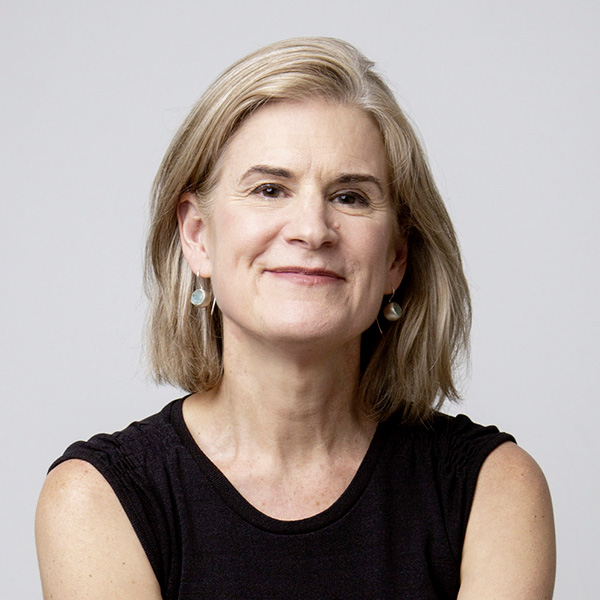
Tempted to dismiss “kids these days” as self-indulgent, fragile whiners? We who were born before 1996 would do well to slow down, suspend our assumptions about how the world works, and try on a posture of genuine curiosity. Might we at least try to fathom Gen Z’s lived experience of an offline and online life that spins at increasing speed, scope and scale?
As a campus minister at the University of Virginia, I am humbled — and often puzzled — by the students I love. Whether we’re discussing the latest student protest on Grounds or handling logistics for our weekly Vintage Lunch, I’m in the presence of self-reliant, caring, pragmatic people who value collaboration over authority. They’ve made and shared that Google form to my inbox before I’ve opened my laptop.
Competent, clever and kind as Gen Zers are, my heart aches for them. According to a report by the United Way of the National Capital Area, 28% of them have personally experienced gun violence; 41% worry about affording their next trip to the grocery store; 58% live with anxiety or depression.
Here is the paradox for Gen Zers: though they have ever more voice in the digital realm, their sense of agency in real life is diminished. Optimistic about their own generation, they are deeply pessimistic about the problems they have inherited: racial and gender injustice, failures of the political system, climate change, violence. They fear they have precious little chance of owning a home or matching their parents’ level of affluence.
No wonder their distrust of organized, traditional religion (56%).
You may find, as I have, that Gen Zers are broadly informed people who value flexibility, diversity, authenticity and nonhierarchical leadership.
As digital natives, they’ve grown up with visibility into the grand variety of people, identities, issues and causes. Compared with older generations, Gen Z has a greater likelihood of personally knowing individuals who are regularly discriminated against. When they practice radical empathy, it’s palpable. Demanding coherence between discourse and action, young adults may well call out those industries, brands and institutions that violate principles of transparency, justice and equity.
Be prepared to be surprised. Even as you come down on the kids for an obsession with social media, know that 75% actively monitor their own screen time.
Though they may not listen to your voicemail message when a quick text will do, when a researcher asked, “What type of communication do you like best?” nearly every single Gen Z respondent said, “My favorite way to communicate is in person.”
They’d value a job that prioritizes work-life balance over career advancement. Despite their distrust of institutions, they declare themselves increasingly spiritual (77%), even religious (68%).
“...let us consider the lessons they have to teach us...”
So what is needed from us, the elders from the world as it once was, not the world that is to come? As we hold the question, let us consider the lessons they have to teach us: Know who you are. Live by your values. Embrace diversity. Open institutions to the talents of the many, not the few. Make the world kinder. Support your friends. Be responsible for your own well-being. Be real.
Knowledge and character matter
BY CJ RHODES, DIRECTOR OF RELIGIOUS AND SPIRITUAL LIFE
ALCORN STATE UNIVERSITY, LORMAN, MISSISSIPPI
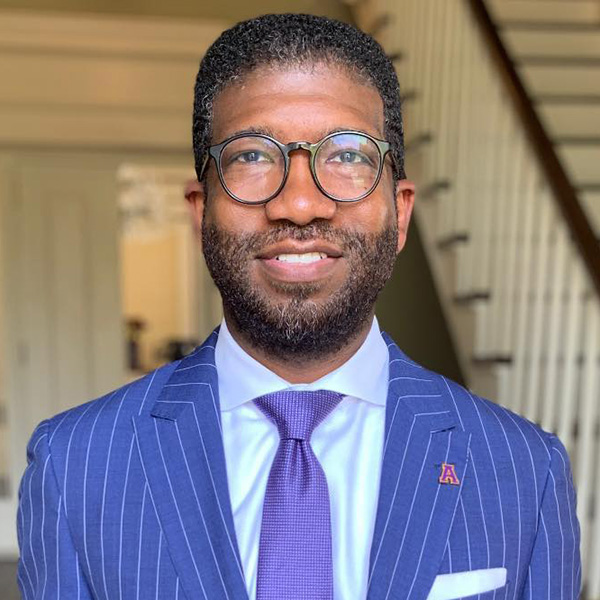
“For the Spirit God gave us does not make us timid, but gives us power, love and self-discipline.” 2 Timothy 1:7 (NIV)
Alcorn State University is a unique place, a bit of heaven on earth. For more than 150 years, America’s first Black land-grant college, nestled in rural southwest Mississippi, has been a city of refuge for diverse students. Though Mississippi’s first public HBCU was not founded as a religious institution — unlike Jackson State University, which was established by the American Baptist Home Mission Society as Natchez Seminary in 1877 — Alcorn is undeniably a spiritual oasis. Our campus’s most iconic building, the chapel, was the towering sanctuary for Oakland College, a school that educated white Presbyterians before closing after the Civil War. When Oakland’s former campus was granted by the state as the property for Alcorn, Hiram Rhodes Revels, the first African American U.S. senator and an African Methodist Episcopal pastor, became our first president. Alcorn’s origin story, though not rooted in missionary efforts akin to those that germinated private HBCUs, is baptized in faith, hope and love.
I have served as Alcorn’s chaplain since 2013. Numerous students have worshipped together in the chapel, have huddled together for Bible study, have grasped hands in prayer circles to seek God’s comfort or blessing. Their enthusiasm for public faith and good works has ministered to me. Following the pandemic, students slowly warmed back up to public functions, and several advocated for religious and spiritual life. The past two student government presidents and the incoming one are believers who incorporated spirituality in their platforms. When we welcome back students for the 2024-25 academic term, they will #PackTheChapel as the SGA seeks to stimulate more interest in chapel attendance.
Because knowledge and character matter at Alcorn, intelligent ethical decision making and public service are central to our mission, which students gladly embody. This is a marvel, not because they are young, but because our nation is increasingly decadent. In both politics and the church, we see a decline in moral imagination and a celebration of narcissistic ethical egoism. But Alcorn reminds students — and our students remind us — that we must be brave enough to stand for something, to live our values out loud and to lead rather than follow. One area of interest and activism has been voting rights, remembering the ancestors who were at the forefront of that movement and continuing their work.
We have held an MLK Day march, where religious and Panhellenic organizations partner to lift up the legacy of King and contemporary students’ power to change society. The march begins and ends on the chapel steps, with praying and speaking by student leaders and a concluding message from me.
The Office of Religious and Spiritual Life also co-led a Souls to the Polls walk from the chapel to our campus precinct on Election Day 2023 for state elections.
With the upcoming election, the campus NAACP, fraternities, sororities and the chapel will hold campus get-out-the-vote opportunities with students, recognizing the role of faith and faith institutions in civic engagement through prayer, policy analysis and direct action.
Bravery is part of the Alcorn brand; on the football field or in the field of civil rights, Alcornites have led. Hiram Revels, Medgar and Myrlie Evers, and others who are part of the Alcorn story inspire a new generation to express a faith forged in struggle in a way that holds up under scrutiny. When pollsters and the elders complain about how young folks are dechurched, I say Alcorn is a sustained contradiction to that claim.
Discovering God’s purpose, proclaiming God’s love
BY ROBERT RUEDA, DIRECTOR OF BAPTIST STUDENT MINISTRY
UNIVERSITY OF TEXAS RIO GRANDE VALLEY, EDINBURG, TEXAS
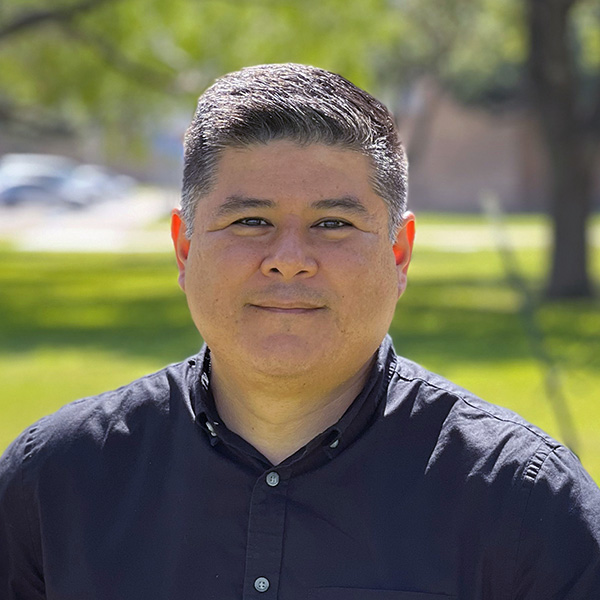
College ministry is a strategic place to change the world. When college students decide to take action on an issue that truly matters to them, they become an unstoppable force. As a college minister, I am committed to seeing students discover God’s purpose for their lives and pursue it passionately. Over the past 19 years, I have seen college students change the world. They sacrifice while navigating academic demands and embracing God’s call to proclaim his love on their campus. They travel around the world serving others by digging wells, hosting medical clinics, working in food banks and fighting against human trafficking. They do this to proclaim God’s love.
Student activism reflects God’s word, calling us to act justly, love mercy and walk humbly with God (Micah 6:8). College campuses can nurture this calling. Many students find themselves confronted when learning about the realities of their world and God’s undeniable love for all people: How can God use my life in a world of injustice and suffering? How can I do my part for justice, mercy and love to take root? How does it look when God’s kingdom is enacted where injustice reigns? The answers to these questions provide the starting point for student activism.
I am blessed to serve as a college minister to Hispanic students at the Texas-Mexico border. Here you don’t have to go far to encounter causes that demand a Christian response; you either do something about it or look the other way. It is a place where immigrants catch their first glimpse of the American dream. A place where the juxtaposition of poverty and wealth is a constant reminder of injustice in the world. A place where people have taken a stand and fought for their rights.
It has been my privilege to witness Christian college students becoming faith-centered student activists. Informed by their faith, they have mobilized to assemble hygiene kits for asylum seekers, feed the poor, hold literacy outreaches, protest policies that are oppressive to undocumented students and their families, and much more.
I have learned two important lessons from seeing Christian student activists on my campus. First, they act in Christian love by taking a nonviolent approach as exemplified by the Rev. Dr. Martin Luther King and Cesar Chavez. Second, they seek to honor their families through their activism. The greatest demonstration I have seen of student activism is when my students place their graduation stoles on the shoulders of their migrant fieldworker parents.
Beyond vigils and protests
BY D. SCOTT RUSSELL, EPISCOPAL CHAPLAIN
RUTGERS UNIVERSITY, NEW BRUNSWICK, NEW JERSEY
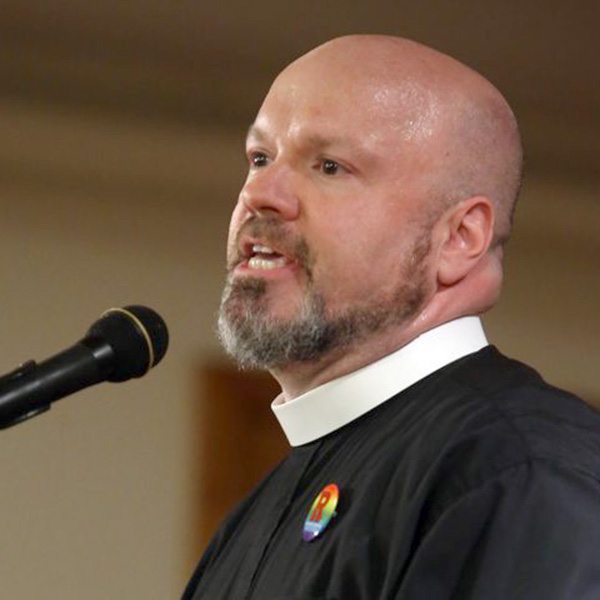
It was just a few days after the events of Oct. 7, 2023, that I received an invitation for a “teach-in” at Rutgers University. I was familiar with the concept from the history of university culture dating back to the ’60s and the Vietnam War, if not before. I was intrigued but also excited to engage with the university beyond the vigils and protests that had already begun on campus.
This teach-in was hosted by the women’s studies department and featured several scholars of both women’s studies and Islam. I learned a great deal and also heard the voices of many in the room who were fearful and experiencing great pain. The violence touched many lives on campus, and the chaplaincies were called on to serve as both hosts and advocates for the various faith communities affected.
A few weeks later, I was invited to another teach-in that was focused more on support and solidarity for the faith communities that were living with fear and pain, which was understandably distracting many students, faculty, staff and administrators from their studies and work during the semester. What surprised me, and positively so, was the number of individuals from other campus communities who showed up to demonstrate their support for their hurting friends and colleagues. There were members of the queer community, international students, BIPOC students and staff, representatives from many of the faith communities on campus, and so many others. We heard from students and professionals and learned how best to show support and advocate for them during the uncertain times ahead.
The Interfaith Alliance of chaplains representing the faith communities at Rutgers has been working with the university administration for over 20 years to provide educational and service opportunities. We are also committed to modeling for the university how to have conversations around difficult topics and circumstances. That commitment has been severely challenged during the past year. The Center for Islamic Life was vandalized. Jewish and Muslim students, as well as members of the Sikh community, have reported harassment.
As the new school year approaches, we have been working together to plan how we will support both returning and new students. We have been providing “processing spaces” for all students, in collaboration with the university’s counseling center. With tensions sure to rise in an already fraught election season, we are renewing our commitment to stand up for all the faith communities on campus. We are striving to separate faith from politics, while acknowledging how much they are intertwined.
We have many learning opportunities ahead — not just for the students but also for us as faith leaders. We will focus on teaching and advocacy, but also on spiritual safety. We hope they will discover new allies and advocates from unexpected communities. We hope they will build bridges where that has seemed impossible. As we encourage them to own their questions, anxieties and hopes, no matter what they are, we as faith leaders are learning yet again how to trust each other and make this pivotal moment one of our finest hours.

